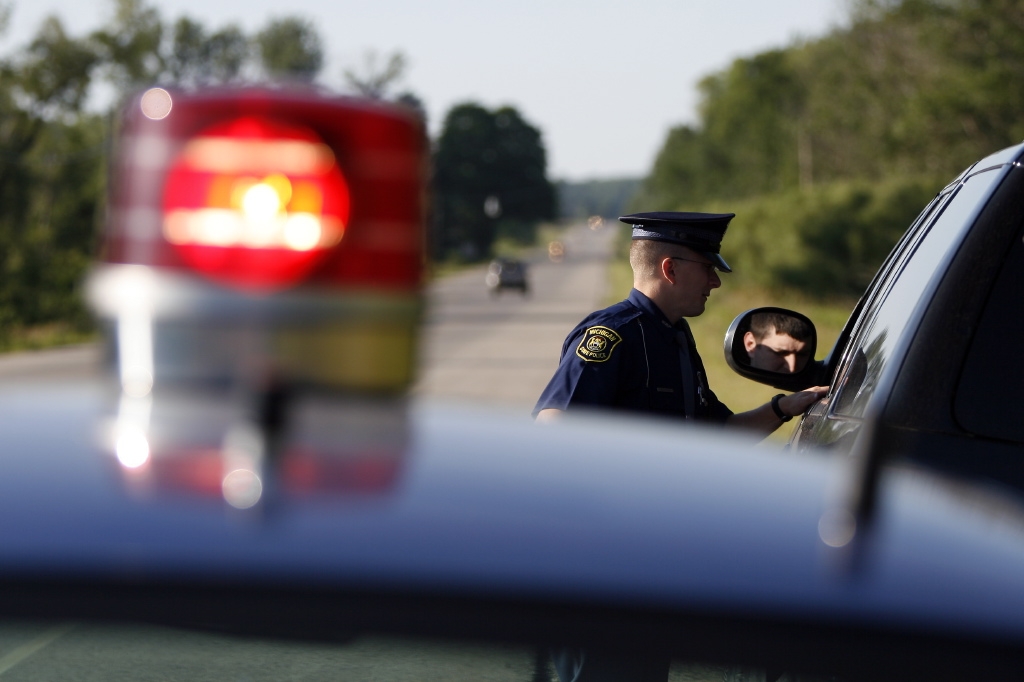A motorist is charged with OWI after a police officer stopped the vehicle for speeding, but the officer did not write a ticket for speeding. Is this a legitimate OWI arrest or can the motorist challenge the traffic stop?
Short answer: the traffic stop might be completely lawful (if the motorist was actually speeding) AND the motorist may also raise a valid challenge to the traffic stop!
To be blunt, police officers do make unlawful traffic stops. The criminally accused can always raise a challenge to an unlawful detention or an unlawful seizure under the 4th Amendment. The motorist is not required to present evidence that is favorable to the prosecution, but the prosecutor is obligated to provide evidence favorable to the defense. Even if the traffic stop was completely legal, this means that the prosecutor would be required to disclose evidence to the accused that (for example, if true) the officer has a history of lying about people speeding. On the other hand, the criminally accused is permitted to challenge every aspect of the case with impunity and "may so defend the proceeding as to require that every element of the case be established."
But a police officer is NOT required to write a traffic ticket for speeding to justify the OWI arrest. An officer must only establish that the traffic stop was actually lawful. (In many instances, officers will not write the speeding ticket along with the OWI ticket because the OWI arrest is more serious and carries more traffic points. Points arising from the same traffic stop merge, so the 6 point OWI arrest would merge with the 2 point speeding ticket, resulting in only 6 points with a conviction.)
A "pretextual" stop is completely lawful so long as there is an objective and legal reason to conduct the traffic stop. Whren v United States, 517 US 806, 135 L Ed 2d 89, 116 S Ct 1769 (1996). But a pretextual traffic stop that is not based upon an objective and legal reason for the stop is unlawful. Id. See also, United States v Huguenin, 154 F3d 547, 557 (6th Cir. 1998) ("The Supreme Court emphasized . . . in Whren. . . [that] there is a significant difference between a pretextual stop based on probable cause that a traffic violation has occurred, and a stop that is not based on probable cause or even reasonable suspicion"). See also, United States v Hill, 195 F3d 258 (6th Cir. 1999) ([I]t is the responsibility of the courts to make sure that police officers act appropriately and not abuse the power legally afforded to them by, among other things, carefully scrutinizing a police officer's testimony as to the purpose of the initial stop.)
If a traffic stop is wholly unlawful, and the stop of the vehicle lacks any cause or reasonable level of suspicion, the seizure is prohibited as a “warrantless and suspicionless seizures of automobiles for the purpose of enforcing the criminal law” and violates art 1, § 11 of the Michigan Constitution. Sitz v Dep't of State Police, 443 Mich. 744; 506 N.W.2d 209 (1993); People v Kamhout, 227 Mich 172; 198 NW 831 (1924).
Finally, unlawfully obtained evidence resulting from an illegal traffic stop is subject to suppression. This is know as the "fruit of the poisonous tree" doctrine. (The "fruit of the poisonous tree" is a legal metaphor in the United States used to describe evidence that is obtained illegally. The logic of the terminology is that if the source --the "tree"-- of the evidence or evidence itself is tainted, then anything gained --the "fruit"-- from it is tainted as well.) Evidence collected and/or discovered as a result of the warrantless and suspicionless stop is fruit of an illegal search or seizure and is subject to the exclusionary rule. Wong Sun v United States, 371 US 471 ,484; 83 S Ct 407; 9 LEd 2d 441 (1963); People v LoCicero, 453 Mich 496, 508 (1996).